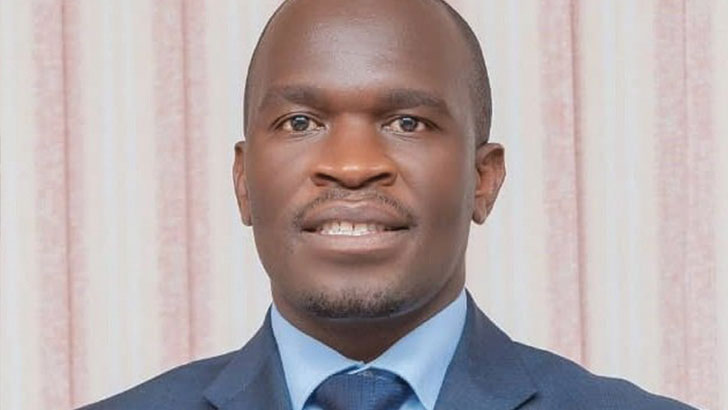Attorney General (AG) Thabo Chakaka Nyirenda and Director of Public Prosecution (DPP) Steven Kayuni have declined to explain if they got any information from the United Kingdom (UK) that may help to prosecute businessperson Zuneth Sattar.
The AG and DPP offices could also not disclose progress made so far since Sattar was arrested in the UK last October.
Sattar, wanted in Malawi to answer corruption charges, is still in the UK and is on bail. He is also facing criminal charges in that country.
His business partner Ashok Nair was also arrested by the Anti-Corruption Bureau (ACB) in Malawi before the High Court in Lilongwe granted him bail.
When contacted on Thursday, DPP Steven Kayuni said he could not comment on the matter as it was still under investigation.
He said the AG was the appropriate authority to comment on the matter.
Nyirenda: I cannot comment
While confirming Malawi sought legal support from the UK, AG Chakaka Nyirenda declined to discuss finer details.
He said: “I understand the issue of mutual assistance in criminal matters as provided for under the Financial Crimes Act as the Mutual Assistance in Criminal Matters Act is subject matter of the judicial review application by Honourable Kezzie Msukwa.
“I think it is prudent that I refrain from commenting on it for fear of transgressing the subjudice rule.”
ACB had earlier on December 29 2021 obtained a warrant of arrest of former minister of Lands Msukwa in connection with land deals linked to Sattar and his business partner Nair.
But before the arrest was made, Msukwa obtained an injunction on January 2 2022 from the High Court in Zomba.
University of Malawi political scientist Mustafa Hussein said: “If the information on the mutual legal assistance with the UK Government was provided to the public through the media, and as simple as stating documents received so far without disclosing information contained therein or disclosing at what percentage of the information received or struggles being experienced, if any, Malawians would have appreciated the progress being made on the case.”
He said for the sake of transparency and accountability, government could have done better to provide a report on progress made on the case.
Said Hussein: “Authorities may not disclose everything to protect national interests. It requires government to make a decision what to share and what not to. If a disclosure may affect or undermine a case in court, they need not to share it.
“But the bottom line remains that if it is a matter of simply indicating the level of cooperation that is there or the type of documents received so far, surely the citizens deserve to have that information to appreciate the work their public officers have so far done.”
According to the laws of Malawi, Mutual Assistance in Criminal Matters Act, the appropriate authority, in pursuant of a criminal matter, may transmit a request to any country in the Commonwealth to locate a person.
Reads the Act in part: “Where the appropriate authority in Malawi has reasonable grounds to believe that an article or thing is in a Commonwealth country and would, if produced, be relevant to any criminal matter, a request may be transmitted by such authority to the appropriate authority in the Commonwealth country requesting that assistance be given by the Commonwealth country in obtaining, by search and seizure if necessary, the article or thing.”
The British Government last year also asked Malawi for some information to help them investigate Sattar on corruption allegations committed in Malawi.
In November last year, the High Court in Blantyre threw out an application by Sattar for permission for a judicial review of the decision by the ACB to offer assistance to the UK Government’s investigative agencies in obtaining evidence or information in Malawi concerning suspected criminal acts that he committed.
In pleading with the court to grant leave for judicial review, Sattar’s lawyer argued that the AG is the appropriate authority to deal with the UK Government investigative agencies not the ACB director general.
The court had also rejected another application for an injunction that sought to restrain the ACB from any sort of cooperation with the UK’s investigation agencies on matter’s surrounding the investigation on Sattar.
The application for an injunction also sought to restrain the sharing of any evidence that was obtained by the ACB during the search and seizure operation it conducted on the homes and offices for Sattar.
When throwing out the application for permission for judicial review, the court had observed that the grounds raised by Sattar were significantly based on speculation.
The ACB had disclosed early January that after the arrest of former minister of Lands, Housing and Urban Development, Msukwa, it was set to arrest two more people then start prosecuting the case.
Sattar and Nair are alleged to have been giving bribes to politically exposed persons with the aim of influencing public officers to corruptly award contracts to companies belonging to Sattar.
Particulars of the offence show that Nair in or around August 2021 corruptly gave Msukwa K4 million to pay duty to the Malawi Revenue Authority (MRA) for a Mercedes Benz C-Class which Sattar bought for the minister.
The investigation Sattar is facing in the UK by National Crime Agency (NCA) is based on allegations of corruption in his dealings with the Government of Malawi
The post Govt mum on Sattar case appeared first on The Nation Online.
 Moni Malawi
Moni Malawi 

